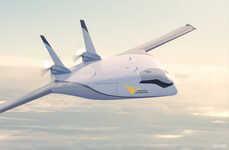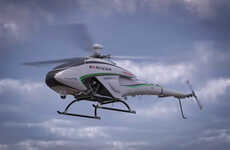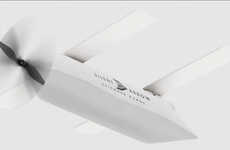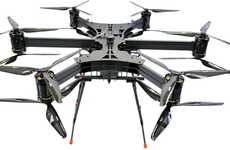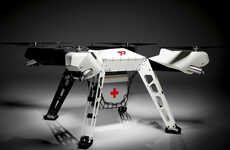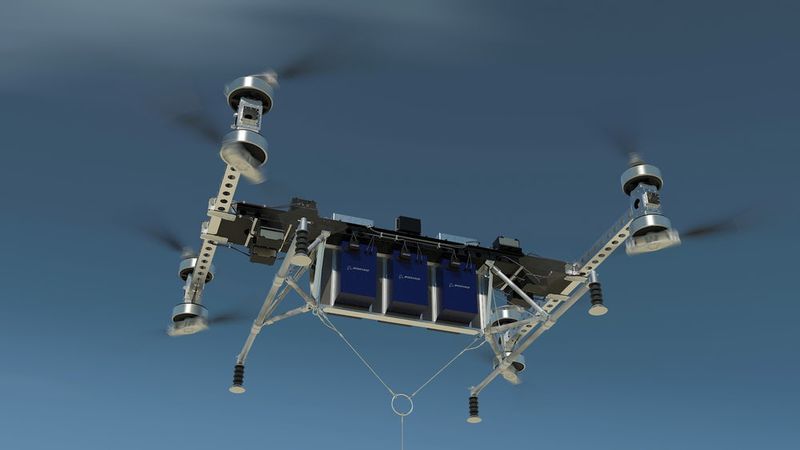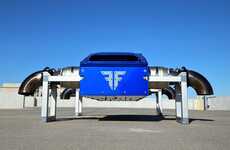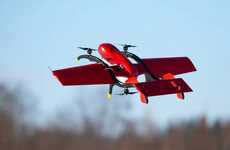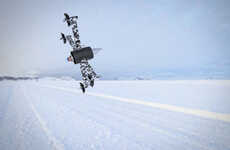
This Boeing Quadcopter Can Carry Up To 500 Pounds Of Goods
Rahul Kalvapalle — January 11, 2018 — Tech
References: boeing.mediaroom & newatlas
American aerospace giant Boeing is unveiling a heavy-duty cargo drone that is designed to make it possible to haul massive loads of weight at significant distances.
By making use of what Boeing calls an electric vertical-takeoff-and-landing (eVTOL) system, this particular quadcopter can lift off while carrying a payload of up to 500 pounds. Measuring in at 15 feet long, 18 feet wide and four feet tall, this cargo drone weighs in at 747 pounds, making it one of the biggest drones around. The drone has undergone initial flight tests, with further research and development in the works.
This humongous cargo drone is designed to help contribute to the revolution currently gripping the air travel and cargo transportation industries by using autonomous and electric technologies for greater efficiency.
By making use of what Boeing calls an electric vertical-takeoff-and-landing (eVTOL) system, this particular quadcopter can lift off while carrying a payload of up to 500 pounds. Measuring in at 15 feet long, 18 feet wide and four feet tall, this cargo drone weighs in at 747 pounds, making it one of the biggest drones around. The drone has undergone initial flight tests, with further research and development in the works.
This humongous cargo drone is designed to help contribute to the revolution currently gripping the air travel and cargo transportation industries by using autonomous and electric technologies for greater efficiency.
Trend Themes
1. Autonomous Cargo Drones - The development of autonomous cargo drones presents disruptive innovation opportunities in the transportation and logistics industry, allowing for more efficient and cost-effective delivery of goods.
2. Electric Vertical-takeoff-and-landing (evtol) Systems - The advancement of eVTOL systems opens up opportunities for disruptive innovation in the aerospace industry, enabling the transportation of heavy loads over significant distances using electric-powered vertical takeoff and landing capabilities.
3. Revolution in Air Travel and Cargo Transportation - The ongoing revolution in air travel and cargo transportation industries creates opportunities for disruptive innovation through the integration of autonomous and electric technologies, leading to increased efficiency and sustainability.
Industry Implications
1. Transportation - The transportation industry can benefit from disruptive innovation by adopting autonomous cargo drones for efficient and timely delivery of goods.
2. Logistics - Disruptive innovation opportunities arise in the logistics industry by leveraging autonomous cargo drones to optimize delivery routes, reduce costs, and enhance supply chain management.
3. Aerospace - The aerospace industry can capitalize on disruptive innovation by developing and implementing electric vertical-takeoff-and-landing (eVTOL) systems for efficient and sustainable cargo transportation.
5.4
Score
Popularity
Activity
Freshness


